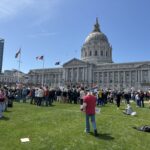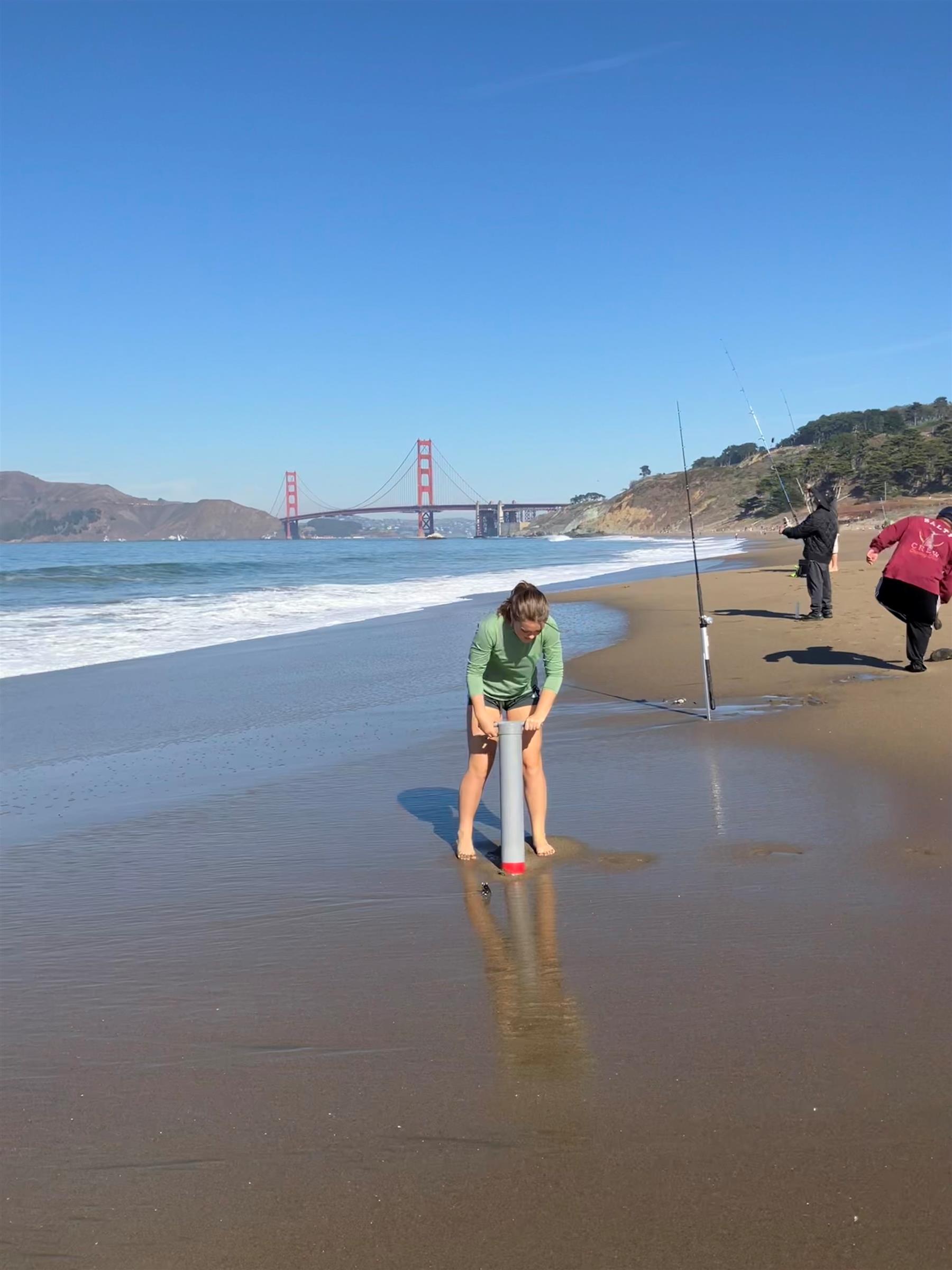Citizen science, defined as any research or scientific observation conducted by the general public, is essential to scientific progress. For Lick-Wilmerding High School’s class, Biology Honors: Marine Ecology Field and Lab Science (PPP), citizen science has increased the students’ engagement in the class while also having a greater impact on the wider community.
The benefits of citizen science include increasing the scale of data collection and allowing for broader real-time observationof scientific phenomena. Citizen science also builds a better understanding of the scientific method and a sense of environmental stewardship in society at large.
For all of these reasons, LWHS students in Marine Ecology contribute to data collection through fieldwork. For the last five years, each class has monitored the local population of mole crabs, a species that is an important indicator of shoreline ecosystem health. Students go to local beaches to find mole crabs, measure their size and record their sex. Later, the data is uploaded to a centralized data collection portal where it is combined with other schools’ observations to provide population estimates.
This fieldwork is also hugely beneficial to students’ learning. “Field work gives us a nice hands-on expression of what we are learning,” Marine Ecology student Zachary Fuchs ’25 said. “We were learning about beach ecosystems and now we are going to the beach and experiencing the ocean for ourselves which really strengthens the connection we have to our marine ecosystems.” This stronger connection to the ocean better motivates students to learn more about and protect the ocean.
Beyond LWHS, there is robust citizen science activity in the Bay Area. The California Academy of Sciences (CAS) conducts extensive citizen science work with the general public. CAS hosts events called “Bio Blitzes,” which are events that focus on finding and identifying as many species as possible in a specific area over a short period of time. One example of this is the Candlestick State Park Bioblitz in 2019, identified 253 different species in the park over the course of one day. This data contributes to local biodiversity surveys. Using the iNaturalist mobile application, anyone can do fieldwork for the Academy of Sciences by recording observations of wildlife with their smartphones. iNaturalist is a network of naturalists, citizen scientists, and biologists built on the concept of mapping and sharing observations of wildlife across the globe.
Rebecca Johnson, Co-Director of the CAS Citizen Science department, credits citizen science for informing local decision-making with data. “It’s helped to grow the community of naturalists who are sharing their observations, which means that we have a lot of data about where plants and animals are found here in the Bay Area. Those data [points] are super important for making decisions. If you know where plants and animals are found, you can help conserve them better,” she said.
For Marine Ecology students, participating in citizen science is also important because of the impact that their data collection has on the wider community. “We need to take [fieldwork] seriously because it’s not just about us. It’s not just about fun. It’s even about much more than learning. It’s about doing an actual job,” Marine Ecology teacher Gillian Ashenfelter said.
Despite these benefits, citizen science is not without issues. “I wish that [citizen science] didn’t have to struggle so much for funding. They are constantly writing grants, doing fundraising, and contacting all the diffagencies to keep the programming going. Even though it has an actual scientific value. It doesn’t mean that it’s just freely given money,” Ashenfelter said.
Funding for citizen science comes from a variety of places: philanthropy, government funding and private grants. This patchwork approach to funding makes long-term planning difficult. Both Co-Directors of the Citizen Science department at CAS agreed that inadequate funding is a universal problem. “In science, whether it’s citizen science or not, it always needs more funding,” Johnson said.
Despite the funding challenges, citizen science is particularly relevant now due to the rapidly changing climate. Scientists need real-time access to as much data as possible to understand and react to the environment. The internet and smartphones facilitate accurate, nearly instantaneous data collection. Applications like iNaturalist allow people to record their observations from their phones and upload them to the site.
“Citizen science is the oldest form of scientific work,” said Alison Young, Co-Director of the Citizen Science program at CAS. According to Young, scientific observation was first carried out by community members investigating the world around them and noticing patterns. However, citizen science assumed a smaller role following the emergence of professional science occupations in the 19th and 20th centuries.
There has been a resurgence in citizen science in the last ten years, but professional scientists have expressed skepticism and questioned the accuracy of crowdsourced data. But, according to Young, that perception is changing. “More and more folks are using technology to help gather data, and people are validating datasets and realizing that in many cases, they’re just as good as datasets that are collected by professional scientists…showing that it’s at the same level as traditional science,” Young said.
Perhaps the most exciting development in contemporary citizen science lies in integration. “There’s a real power in combining some kind of traditional monitoring data along with citizen science data, and my team has shown that when you combine massive amounts of community collected data with traditional monitoring, you can answer questions that you can’t answer with either alone,” Johnson said. Counting mole crabs may seem mundane, but LWHS students are participating in an exciting worldwide movement as citizen scientists.






